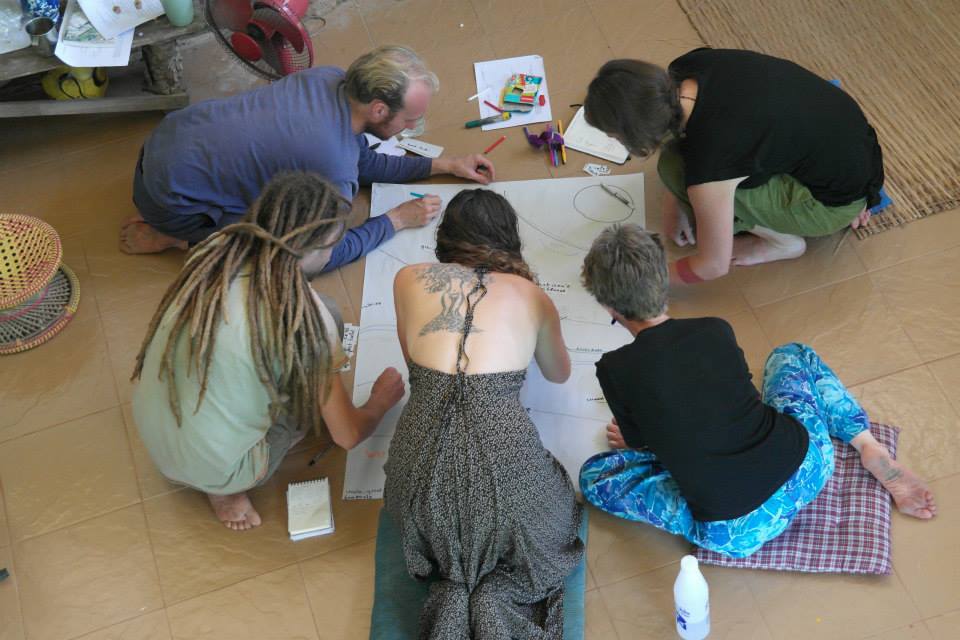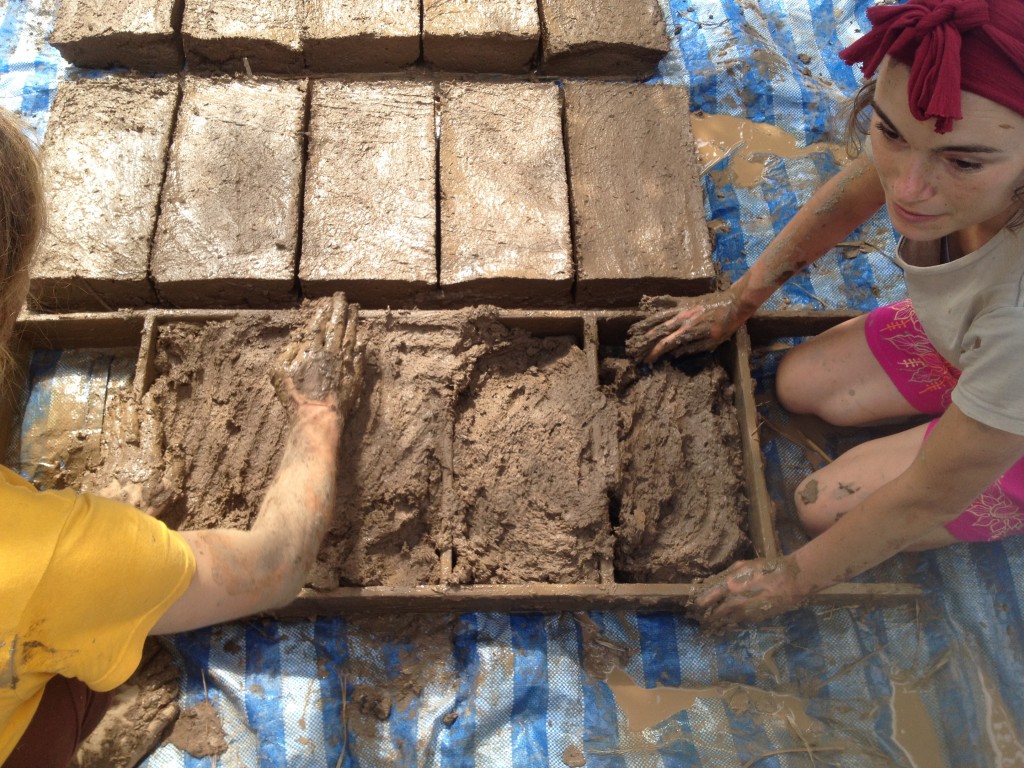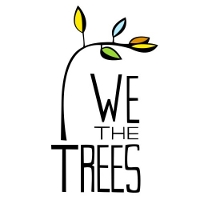The Panya community invites you to join us for a two-week Permaculture Design Course (PDC) November 13-27. The Panya Project is an example of an integrated Permaculture site with many exciting examples of Permaculture design in practice. Not only will you be partaking in a two-week long immersion in Permaculture, you will also be part of the Panya community and thereby learn how to live and thrive in an intentional community. Our aim is to create a supportive learning community for the duration of the course where trust, compassion, support, and connection is built among participants.

What is a PDC?
A PDC is an internationally-recognized, 72-hour theory course resulting in a Permaculture Design Certificate. It provides an introduction to permaculture design as set forth by movement founder Bill Mollison. The PDC serves as a foundation for further permaculture work and study and is also a prerequisite for the Diploma in Permaculture Design, offered through The Permaculture Institute and Gaia University. Credit for this course is now accepted by a growing number of universities around the world. To date, thousands of permaculture designers worldwide have been certified through this course, and now comprise a global network of educators, ecological activists, consultants and practitioners who are influencing the decisions of major corporations, small business and people from all walks of life to change the way we view and design our landscape, our surroundings, our relationships and our daily lives so we can grow the revolution that our planet needs.

What to expect:
This PDC promises to be a very powerful experience. We teach based on our real life experience with Permaculture here at Panya. It is our goal to live, breathe and practice Permaculture every day and we are very eager to share as much of our knowledge as possible. The 72-hours of coursework, required to receive a Permaculture Design Certificate, will be covered over the two week period. It promises to be a PDC full of energy and excitement, where sessions will be taught to accommodate different adult learning styles combining lectures, group discussions, visual demonstrations, hands-on participatory learning and other creative ways of teaching permaculture. Participants will take part in the existing permaculture activities on our farm. All students are required to be present for the full two weeks if they wish to receive the certificate.
Check out our great short movie all about Panya and our PDC's:
Course Details:
This 2-week program is designed to give participants the inspiration and knowledge they need to become a positive change in the world. The course will include a broad range of topics applicable to life anywhere on this planet, it will be tailored to the needs of the students present as well as the location at hand. We will cover every major topic in Bill Mollison's Permaculture: a Designers Manual in the classroom and also in the gardens. The course curriculum is as follows:
-
Philosophies and Ethics underlying permaculture
-
Permaculture principles and how to apply them in your daily life
-
Patterns in Nature and how to use that in permaculture design
-
Methods of design. How to apply permaculture design tools and strategies to your design problems. How to increase your chance on a successful design by following a well-defined design methodology.
-
Climatic factors and strategies. We will cover all the major climates and how to work with them.
-
Trees, Forests and Forest gardening. How to mimic natural forest systems to create an abundance of food, fiber, and fodder.
-
Water: catchment, usage, importance, and conservation.
-
Soil: Learn about the physical, chemical and biological properties of the soil and how to work with the soil food web to build new soils, prevent erosion, create a healthy ecosystem and regenerate degraded land.
-
Earthworks. Shaping the land to reap the rewards of mother earth and create positive effects on ecological systems
-
Aquaculture Exploring the symbiotic relationship between fish and plants
-
Natural Building. How to build beautiful, spiritually uplifting homes using locally resourced natural materials.
-
Alternative systems. Community living and alternative lifestyles that unite people and the planet. Bioregional organizations, community development, alternative economic systems, permaculture as aid.
As part of the course, participants will help to co-create designs for real-world projects that could include elements such as food forests, permaculture-style gardens, natural building, water catchment and irrigation systems. Participants will have the opportunity to design their own land or any projects they are involved in during this project. (Please contact us for more information if you are interested in designing your own land or project you are involved in)

Cost:
Course price: _________ US$500 (17,000 Baht)
This price includes all meals and a place to stay for the duration of the course.
We ask all registrants to make a deposit of US$200 to secure your spot and the remaining fees be paid in cash on arrival.
REGISTER NOW!
**Scholarships are available to people from Thailand or surrounding SE Asia countries.**
We like to be as transparent as possible with our finances, as an example to other projects and to be open and honest with our visitors, who each contribute so much to the building and maintenance of our farm. Panya is funded through the support of our volunteers, who each contribute to food and accommodation costs through a weekly payment. This helps us break even on the cost of having a short-term community on site. Our bigger projects, maintenance systems and financial support of our managers is gained through the courses we run.
Please Note:
In the unlikely event of us canceling the course, your deposit will be refunded in full. Additionally, we will not be held responsible for any financial losses accrued. The closing dates for registering for the course is the 1st October 2016. Deposits are non-refundable. We will accept late bookings if there is space available.
Fundraise for your Tuition
If you are interested in a creative way to come up with funds for this course, look into fundraising for it through WeTheTrees.com. It is a great way to reach out to your family and friends, let them know what you are up to and give them an easy way to contribute to your education.
The Accommodation:
At the Panya Project, we have two dormitory buildings, as well as a number of private rooms available. If you would like to reserve a private room (not fancy!) we are asking for an extra contribution of $100 for the course. Either way, you will be provided with a place to sleep, mosquito net, mattress, sheets, blankets, and pillow. Please be flexible about your sleeping space. If for some reason you would strongly prefer to be in one space or the other, please let us know, and we will try to make that happen for you. Fresh, vegetarian food will be provided throughout the course. Special dietary needs can be accommodated for but please let us know in advance.

Contact information:
Please feel free to email us on panyaproject@gmail.com for any additional information you may need.
Meet the Facilitators:
Nick Tittle
Nick is the CEO of Surplus Permaulture designand former manager of the Panya Project. He grew up in Washington DC and attended the University of South Carolina where he received a bachelors degree in small business management and entrepreneurship. Nick specializes in consulting and teaching about a variety of subjects including natural building, organic gardening, forest gardening, soil food web technology, animal husbandry and alternative economic systems and has consulted in Portugal, Algeria,Thailand, China, India, and the USA. Nick is currently based in Charleston, South Carolina where he is the farm coordinator for Fresh Future Farm as well as working on setting up an Urban Permaculture Education Center.
Adam Dusen
Adam Dusen is the founder and director of Hundred Fruit Farm, a 10-acre permaculture farm in Southeastern Pennsylvania. Adam has a master’s degree in sustainable development from Linkoping University and is a permaculture designer, educator, organic farmer, aquaponics consultant, and organic farm inspector. He helped manage the Panya Project in Thailand over a period of several years, working as a permaculture farm manager at the Center for Sustainable Development in The Bahamas, and most recently returning to the U.S. to start Hundred Fruit Farm in 2015. At Hundred Fruit Farm, Adam is growing over 100 different kinds of fruit and developing a multi-species orchard, food forest, and permaculture nursery.
Contact information:
Please feel free to email us on panyaproject@gmail.com for any additional information you may need.




